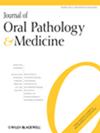AMPK in Chemoradiotherapy-Induced Oral Mucositis
Abstract
Background
Oral mucositis (OM) is a prevalent adverse effect of radiotherapy and chemotherapy, significantly impacting cancer patients' well-being and potentially increasing mortality rates. Understanding OM's pathogenesis and identifying effective preventative and therapeutic agents are clinically crucial.
Methods
This study analyzed RNA-Seq data from the GEO database, focusing on OM samples post-radiotherapy and chemotherapy. Differential gene expression analysis between OM and non-OM groups, followed by gene ontology (GO) enrichment analysis of differentially expressed genes (DEGs), was conducted. LASSO regression identified five potential biomarkers, and CIBERSORT assessed immune infiltration in OM samples. Correlations between biomarkers and immune infiltration were explored, and the connectivity map (CMAP) screened potential therapeutic drugs. The top 10 drugs were validated through molecular docking.
Results
A total of 47 DEGs were identified, primarily involved in mitotic sister chromatid separation according to GO enrichment analysis. CIBERSORT analysis revealed significant changes in B cell naive and dendriform cells (DCs) resting content in the OM group. PRKAA2, encoding the AMP-activated protein kinase (AMPK) catalytic subunit, showed a negative correlation with DC resting content. Molecular docking from CMAP identified aloisine and teniposide as potential agents for OM induced by radiotherapy and chemotherapy.
Conclusion
AMPK emerges as a crucial regulator in OM post radiotherapy and chemotherapy, implicating sister chromatid separation, where DCs may play a pivotal role. Aloisine and Teniposide appear promising for OM prevention or treatment associated with these treatments.

 求助内容:
求助内容: 应助结果提醒方式:
应助结果提醒方式:


